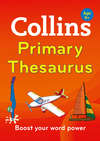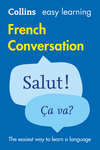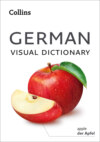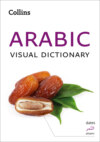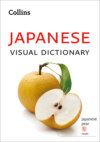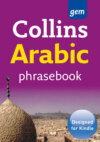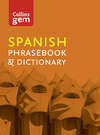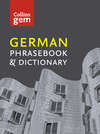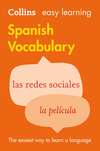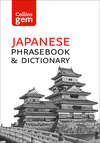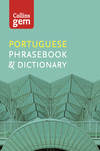Читать книгу: «Collins Primary Thesaurus»

Copyright
Published by Collins
An imprint of HarperCollins Publishers
Westerhill Road
Bishopbriggs
Glasgow G64 2QT
Second Edition 2015
© HarperCollins Publishers 2010, 2015
eBook Edition © March 2015 ISBN 978-0-00-758366-9
Version: 2015-01-19
Collins® is a registered trademark of HarperCollins Publishers Limited
www.collins.co.uk/childrensreference
All rights reserved under International and Pan-American Copyright Conventions. By payment of the required fees, you have been granted the non-exclusive, non-transferable right to access and read the text of this e-book on screen. No part of this text may be reproduced, transmitted, downloaded, decompiled, reverse engineered, or stored in or introduced into any information storage and retrieval system, in any form or by any means, whether electronic or mechanical, now known or hereinafter invented, without the express written permission of HarperCollins.
Entered words that we have reason to believe constitute trademarks have been designated as such. However, neither the presence nor absence of such designation should be regarded as affecting the legal status of any trademark.
The contents of this publication are believed correct at the time of printing. Nevertheless the publisher can accept no responsibility for errors or omissions, changes in the detail given or for any expense or loss thereby caused.
HarperCollins does not warrant that any website mentioned in this title will be provided uninterrupted, that any website will be error free, that defects will be corrected, or that the website or the server that makes it available are free of viruses or bugs. For full terms and conditions please refer to the site terms provided on the website.
If you would like to comment on any aspect of this book, please contact us at the given address or online.
E-mail: dictionaries@harpercollins.co.uk
Acknowledgements
We would like to thank those authors and publishers who kindly gave permission for copyright material to be used in the Collins Corpus. We would also like to thank Times Newspapers Ltd for providing valuable data.
Contents
Cover
Title Page
Copyright
Using this thesaurus
Aa
Bb
Cc
Dd
Ee
Ff
Gg
Hh
Ii
Jj
Kk
Ll
Mm
Nn
Oo
Pp
Rr
Ss
Tt
Uu
Vv
Ww
Yy
Index
About the Publisher
Using this thesaurus
What does a thesaurus do?
A thesaurus gives you a choice of words you can use in place of an overused word like good or say.
Imagine you are writing a description of a meal you have really enjoyed. You might say that the soup was tasty but you don’t want to use the same word to describe the chocolate cake you had for pudding. You can use the thesaurus to find another word that means the same thing. A word that means the same as another word is called a synonym. So you can describe the cake as delicious or mouthwatering or scrumptious.
Using wow words!
This thesaurus is perfect for helping you find wow words to use in your writing. A wow word is one which you don’t use all the time in your vocabulary so, when you do use it, it stands out and really brings your writing to life. It’s good to use wow words instead of everyday words. For example, instead of saying that the man was happy because his football team had won the cup, you could describe him as being ecstatic or jubilant. If the boy in your story says something quietly, you could use muttered, mumbled, or murmured. Rather than saying the girl is always late for school, try consistently or invariably.
Here are some words that are used a lot in writing. These are just the kind of words that could be replaced by a wow word from your thesaurus:
bad
break
cry
cut
eat
fat
feel
good
happy
hit
laugh
look
move
nice
old
run
say
short
small
thin
walk
How to find a word
If you want to find a different way of saying a word, think of its first letter. Once you know this, there is more than one way to find your word in the thesaurus:
• You can use the Index at the back of the ebook which lists the words in alphabetical order. Scroll through the Index until you find the letter your word begins with, then look down the words until you find the one you are looking for. You can then follow the link to the entry in the thesaurus.
• You can use the Contents page at the front of the book, which has a link to every letter in the thesaurus. Follow the link to the letter your word begins with, then look through the entries in this letter until you find the word you are looking for. The entries are in alphabetical order.
Once you have found your word in the thesaurus, you can choose the synonym that suits your writing. Read the example sentences to understand how each synonym can be used.
Finding your way around the thesaurus
1. The headword is the word that you want to find a synonym for.
2. If the headword has a number in brackets after it, then the word has different meanings in the thesaurus.
3. The part of speech tells you what type of word the headword is, such as noun, verb, adjective, adverb, or pronoun. If you are looking for a verb, make sure the headword you look at is also a verb.
4. The definition tells you what the headword means so you can be sure you are looking at the correct entry.
5. Each headword has a list of synonyms. Choose the one which is closest in meaning to the word you want to replace.
6. An example sentence is given for every synonym, showing how the word might be used in speech or writing.

7. A usage tip gives extra information about the headword or its synonyms.
8. Some entries have a list of useful words connected to the headword.

Other features of this thesaurus
• Some headwords can be spelt in more than one way.
among or amongst PREPOSITION
• Some synonyms have a pronunciation to show you how to say the word.
wrath Said “roth”
The player incurred the wrath of the referee for committing a foul.
• Sometimes a label, such as FORMAL, INFORMAL, or OLD-FASHIONED, tells you a little more about how the word is used.
scrumptious INFORMAL
My sister and I reckon that olives are scrumptious.
• Some definitions tell you where to find more information at another headword.
home NOUN
Your home is the building or place in which you live.
dwelling
“Welcome to my humble dwelling,” said Rat.
residence
The ambassador’s residence was an impressive villa among palm trees.
➔ See house
• The entries for some very overused words are marked clearly. Give yourself word power by using the synonyms!
bad (1) ADJECTIVE
Bad things are harmful or upsetting.
 WORD POWER: This word tends to be used a lot. To make your writing more varied, try to use some of the alternative words suggested here instead.
WORD POWER: This word tends to be used a lot. To make your writing more varied, try to use some of the alternative words suggested here instead.
• Some entries show words that mean the opposite of the headword. These words are called antonyms.
careful (3) ADJECTIVE
If you are careful in what you say, you think before you speak.
discreet
Jamila was discreet in not mentioning the party, in case Tanya hadn’t been invited.
tactful
Shopkeepers have to be tactful, for some customers are easily offended.
ANTONYM: careless
Aa
ability NOUN
If you have ability, you have the intelligence and skill to do things.
competence
Sunita showed competence in most school subjects, particularly science.
gift
Jack had a gift for remembering long and complicated equations.
skill
Brackford United played with enthusiasm but little skill in Saturday’s match.
talent
Seamus has a talent for cooking delicious seafood dishes.
ANTONYM: inability
able ADJECTIVE
If you are able to do something, you can do it.
allowed
“I’m allowed to play for half an hour, but then I have to go home,” Ron complained.
available
Rhys said he was available to swim for the team on Saturday.
capable
Mrs Diss said that my twin brother was a capable pupil, but rather lazy.
free
My big sister is free to take me bowling now.
ANTONYM: unable
Other adjectives related to able:
| able… | |
| …to be dissolved | soluble |
| …to be easily fooled | gullible |
| …to be eaten safely | edible |
| …to be heard | audible |
| …to be seen | visible, noticeable |
| …to catch fire | flammable |
about (1) PREPOSITION
If you talk or write about a particular thing, you say things that are to do with that subject.
concerning
The police interviewed the bank manager concerning the robbery.
regarding
Parents were sent a letter regarding half term.
to do with
Mum had a long phone conversation to do with our holiday plans.
about (2) ADVERB
You say about in front of a number to show it is not exact.
approximately
The theatre held approximately 800 people.
around
Around 50 000 people attended the big game.
in the region of
The bike cost in the region of £100.
more or less
Each jar holds more or less five litres.
roughly
We had to wait for roughly three hours.
about (3) ADVERB
About can mean in different directions.
around
“Stop dancing around while I’m talking to you,” Mum said irritably.
here and there
My sister’s clothes were scattered here and there in her room.
hither and thither OLD-FASHIONED
The bee flew hither and thither collecting pollen from the flowers.
about to PREPOSITION
If you are about to do something, you are just going to do it.
on the point of
I was on the point of closing the front door, when the phone rang.
ready to
The pilot was ready to turn back, when he saw the missing boat.
above (1) PREPOSITION
If one thing is above another, it is directly over or higher than it.
on top of
Ali balanced the bag of flour on top of the door, so that it would fall on Craig when he came in.
over
A cloud of smoke hung ominously over the grumbling volcano.
ANTONYM: below
above (2) PREPOSITION
Above can mean greater than something in level or amount.
beyond
The dancer’s skill was beyond anything we could have imagined.
greater than
The number of visitors to the museum this year is greater than last year.
higher than
The cost of the repairs was higher than Mum had expected.
ANTONYM: below
absolutely ADVERB
If you are absolutely sure about something, you are completely sure of it.
completely
Anoop was completely satisfied with his new computer.
thoroughly
“I am thoroughly fed up of washing dishes,” moaned Cinderella.
totally
We sat totally enthralled by the magician’s amazing tricks.
utterly
The instructions to the board game left me utterly confused.
abuse (1) Said “ab-yooss” NOUN
Abuse is the cruel treatment of someone.
cruelty
Sadly, many animals are injured through cruelty or neglect.
harm
Fortunately, the two lost children were found with no harm done to them.
ill-treatment
Oliver Twist suffered much ill-treatment in the workhouse.
abuse (2) Said “ab-yooz” VERB
To abuse someone is to treat them cruelly.
harm
Now the dog was at the rescue kennels, no one could harm it any more.
ill-treat
People who ill-treat their animals should face heavy fines.
mistreat
Cinderella was constantly mistreated by her two ugly sisters.
misuse
The dictator misused his power by giving jobs to his relatives.
accident NOUN
An accident is something that happens suddenly or unexpectedly, causing people to be hurt or killed.
collision
Eight vehicles were involved in a collision during the heavy rain.
crash
The police advised that the airport should be closed because of the plane crash.
mishap
Falling off my bike was a minor mishap, but luckily I wasn’t hurt.
➔ See disaster
accidental ADJECTIVE
Something that is accidental has not been planned.
unexpected
The sail’s tearing in the wind was a totally unexpected problem.
unintentional
“I didn’t mean to stand on the flowers. It was quite unintentional,” I apologized.
unplanned
Although our beach volleyball tournament was unplanned, it was a great success.
ANTONYM: deliberate
accurate ADJECTIVE
If something is accurate, it is absolutely correct.
exact
In order to set my watch, I need to know the exact time.
factual
Non-fiction books are factual accounts of real people and events.
faithful
The French version of the book is a faithful translation of the English original.
precise
Tightrope walkers must be very precise in their movements.
spot-on INFORMAL
Your guess about the train’s arrival time was spot-on.
true
“Is this statement a true record of where you were?” queried the police officer.
ANTONYM: inaccurate
ache VERB
If a part of your body aches, you feel a continuous, dull pain there.
be sore
Jane’s leg muscles were sore after aerobics.
hurt
“Ouch!” said Devendra as the nurse cleaned his cut knee. “That hurts!”
throb
My knee really throbbed after I fell over on the uneven pavement.
action (1) NOUN
An action is something you do for a particular purpose.
act
Rescuing the baby from the burning house was an act of great courage.
deed
Theseus’s bravest deed was the slaying of the dreaded Minotaur.
exploit
The explorer, Sir Archie Pounder, told the school of his exploits in the jungle.
feat
To build Stonehenge without modern equipment was a great feat.
move
I think resting after dinner is a sensible move.
action (2) NOUN
An action is a physical movement, such as jumping.
activity
Our classroom was a hive of activity as we got ready for the concert.
motion
The up-and-down motion of the boat made me feel queasy.
movement
The movements of the conductor’s baton guided the orchestra.
actual ADJECTIVE
Actual can mean something is real, rather than imaginary or guessed at.
genuine
“This table is a genuine antique,” said Gran.
real
The film is based on a real story.
true
“Is this a true record of what you said?” the judge demanded to know.
very
The guide told us Ann Boleyn was beheaded on the very spot where we stood.
add (1) VERB
If you add something to a number of things, you put it with those things.
combine
Orange juice combined with lemonade makes a refreshing drink.
include
“Don’t forget to include a sentence about what your friends think,” Mr Bishop reminded us.
 Remember that you add something to something else, but combine something with something else.
Remember that you add something to something else, but combine something with something else.
add (2) VERB
If you add numbers together, or add them up, you work out the total.
count up
I counted up the spoons, and found there were three missing.
total
Miss Dobson told us to total the figures at the bottom of each column.
tot up INFORMAL
It took me ages to tot up how many hours I had worked that week.
ANTONYM: subtract
adjust VERB
If you adjust something, you change its position or alter it in some other way.
change
I changed the time on my new watch so that it was correct.
correct
Fortunately, the pilot corrected the plane’s course before it hit the storm clouds.
modify
The racing car’s tyres had been specially modified for wet weather.
tune
Dad tuned the radio to a different station.
tweak INFORMAL
Mrs Tordoff asked me to tweak my story to include more dialogue.
admit VERB
If you admit something, you agree that it is true.
acknowledge
Good drivers acknowledge when they have made a mistake.
confess
The prisoner confessed that she had lied.
grant
“I grant that it’s not a great meal,” my brother said, “but at least I cooked it myself.”
own up
The head teacher asked whoever had broken the window to own up to it.
adult ADJECTIVE
An adult is a mature and fully developed person.
grown-up
Dad asked another grown-up for directions.
man
Jim is now a man of 42.
woman
A woman was seen leaving the building.
adventure NOUN
An adventure is something that is exciting, and perhaps even dangerous.
escapade
Entering the Sheriff of Nottingham’s chamber was perhaps Robin Hood’s boldest escapade.
exploit
Several films have been made of the brave exploits of the Three Musketeers.
feat
To abseil down a skyscraper would certainly be a daring feat.
venture
The expedition proved a dangerous venture.
advice NOUN
Advice is a suggestion from someone about what you should do.
guidance
Larissa needed guidance from her teachers about which college to apply for.
recommendation
Mum followed the doctor’s recommendation, and gave up smoking.
suggestion
My friend’s suggestion was to do our work first and play later.
tip INFORMAL
A good tip is to test the water with your toe before you jump in.
advise VERB
If you advise someone to do something, you tell them you think they should do it.
recommend
Mrs Singh recommended that I should sit nearer the front of the classroom.
suggest
“I suggest we go home,” said Mum.
urge
In his speech, the MP urged people to vote for him in the election.
affect VERB
If something affects someone or something else, it influences or changes them.
concern
The issue of global warming concerns everybody on the planet.
have an effect on
The moon’s gravity has an effect on the oceans, creating high and low tides.
influence
The judge’s sentence was influenced by the prisoner’s previous good behaviour.
involve
The accident happened nearby, but fortunately our car was not involved.
 Be careful not to confuse the verb affect with the noun effect.
Be careful not to confuse the verb affect with the noun effect.
afraid ADJECTIVE
If you are afraid, you are frightened.
alarmed
“Don’t be alarmed,” Mum said calmly. “It’s only the wind rattling the windows.”
anxious
As I had not revised my spellings, I was anxious about the test the next morning.
fearful
Faiza is fearful of the dark.
frightened
“Don’t be frightened,” said the giant. “I won’t hurt you.”
nervous
Alim was nervous before his driving test.
petrified
My brother is petrified of going to the dentist.
scared
I told my brother there was nothing to be scared of.
terrified
I used to be terrified of injections, but now that I’ve had one I’m not scared any more.
timid
I was quite timid on my first day at school.
ANTONYM: unafraid
 To be afraid of something is to fear or dread it.
To be afraid of something is to fear or dread it.
after (1) ADVERB
After can mean later than a particular time, date or event.
afterwards
We had our lunch and afterwards went out to the school field.
following
Following the professor’s talk on birds, we had the chance to ask her questions.
later than
It was later than six o’clock when we finally finished shopping.
subsequently
The injured driver was taken to hospital, but was allowed to go home subsequently.
ANTONYM: before
after (2) PREPOSITION
If you come after someone or something, you are behind them and following them.
behind
Behind the royal procession came the jester, prancing about and waving some sort of wand.
following
Off went the removal van, with Dad following.
again ADVERB
Again can mean happening one more time.
afresh
The couple moved abroad to start life afresh.
a second time
The traveller waited before knocking at the door a second time.
once more
Once more Dad tried to put up the deckchair, and once more it collapsed.
against PREPOSITION
Something that is against something else is in opposition to it.
anti INFORMAL
Our entire family is anti hunting. We think it’s cruel.
opposed to
I was opposed to the idea of moving house.
versus
In our playground game, it was Rachel and me versus the rest of the class.
 If something is against the law, it is illegal.
If something is against the law, it is illegal.
aim (1) VERB
If you aim to do something, you are planning to do it.
intend
One day, I intend to own a chocolate factory.
mean
The player meant to hit the ball down the line, but it flew into the crowd.
plan
Dad had planned to work abroad, but then he was offered a job in Britain.
propose
Mr Potter proposes to put on a school play this year.
set your sights on
Louis had set his sights on becoming an artist, but became a photographer instead.
aim (2) NOUN
Your aim is what you intend to achieve.
goal
Cassandra’s goal is to make a million dollars before she is 25.
object
The object of the game is to throw the ball in your opponents’ basket.
objective
“Men,” barked the Major, “our objective is to cross that river before the enemy sees us.”
purpose
The purpose of the meeting was to decide what our class would do for the school concert.
target
The target for this year’s bring-and-buy sale is to raise a thousand pounds.
aircraft NOUN
An aircraft is any vehicle that can fly.
Types of aircraft:
aeroplane
glider
hang-glider
helicopter
hot-air balloon
microlite
alike ADJECTIVE
Things that are alike are very similar in some way.
comparable
The two boys had had comparable experiences at primary school.
identical
The twins were identical except for the way they styled their hair.
indistinguishable
The forgery and the original painting were indistinguishable.
similar
Phoebe’s house is like ours, and Justin’s is similar too.
ANTONYMS: different or unlike
all right (1) ADJECTIVE
If something is all right, it is satisfactory, but not especially good.
acceptable
Your work is acceptable, Watts, but by no means outstanding.
adequate
The nurse thought her temporary bandage would be adequate to stop the bleeding.
average
“My exam marks were average, but I’m sure I can do better,” said Ron.
fair
Leo made a fair attempt at the test, considering he had felt so ill earlier.
satisfactory
The car was in a satisfactory condition to pass the safety test.
all right (2) ADJECTIVE
If someone is all right, they are safe and not harmed.
safe
“You’ll be quite safe provided that you wait here,” the police officer said.
unharmed
After getting lost in the hills, the boys were returned unharmed to their parents.
unhurt
The stunt rider escaped unhurt after his bike cartwheeled into the air.
uninjured
I was shaken but uninjured after falling during the race.
almost ADVERB
Almost can mean very nearly.
just about
We were just about ready to go, when Mum’s phone bleeped.
nearly
It was nearly five years since Hanif had seen his aunt and uncle.
not quite
I had not quite finished the test when Mr Halliday said the time was up.
practically
Practically all the sandwiches had been eaten.
virtually
Despite having virtually no time to practise, Darius played the piano piece perfectly.
alone (1) ADJECTIVE
Someone or something that is alone is not with other people or things.
detached
The elephant was detached from the herd.
isolated
The old man lived in a cottage on the cliff top. He felt quite isolated.
solitary
Robinson Crusoe was solitary on his desert island home.
alone (2) ADVERB
Something that happens alone, happens without other people or things.
independently
Sian did her homework independently.
separately
The teachers came with us on the bus, except for the head who came later, separately.
solo INFORMAL
The pilot now flew solo for the first time.
also ADVERB
Also can mean in addition to something that has just been mentioned.
as well
Mum had just bought the lettuce when she remembered to get some tomatoes as well.
besides
The competition winner received a sports bag, and a signed bat to go in it besides.
furthermore FORMAL
“You’ve worked well,” the teacher said, “and furthermore you’ve worked quietly.”
in addition
My prize was free tickets to the show. In addition, it included a meal afterwards.
moreover FORMAL
It was cold, and moreover it was getting dark.
too
William is nine, and Rina is too.
although CONJUNCTION
Although can mean in spite of the fact that.
even though
Jessica managed to win the marathon, even though she’d had flu earlier that week.
while
While the work on an oil rig is tough, the pay is good.
altogether ADVERB
Altogether can mean in total and is used when talking about amounts.
all told
There were over two thousand people at the show, all told.
everything included
Everything included, the fête raised enough money for the new equipment.
in total
In total, the auction raised well over five thousand pounds.
always (1) ADVERB
Always can mean all the time.
consistently
Andy is consistently the best player on our hockey team.
constantly
We are constantly receiving junk e-mails.
continually
My mum is continually nagging me to keep my room tidy.
continuously
The generator chugged away continuously throughout the night.
invariably
Aissa is invariably late for school.
regularly
Stars are regularly asked for their autographs.
repeatedly
“I’m repeatedly telling you not to speak with your mouth full!” Dad said crossly.
time after time
Time after time, my little brother asked me to play with him.
ANTONYM: never
always (2) ADVERB
Always can mean forever.
endlessly
I shall be endlessly grateful to the woman who saved my life.
forever
“Madam, I am forever in your debt,” the musketeer said as he swept from the room.
perpetually
The Olympic flame burns perpetually.
ANTONYM: never
amazing ADJECTIVE
If something is amazing, it is very surprising.
astonishing
It is astonishing that we breathe, on average, 500 million times in our lives.
astounding
The marathon runner kept up an astounding pace for the whole 26 miles.
breathtaking
Seeing Niagara Falls was a breathtaking experience.
sensational
The show was sensational, with superb music and dancing.
staggering
It is staggering to realize that 60 per cent of our body is water.
among or amongst PREPOSITION
Among or amongst can mean surrounded by.
amid
Workers searched amid the wreckage for any sign of survivors.
amidst
Amidst all the weeds, a single rose bloomed.
in the middle of
In the middle of the herd of cows was a newborn calf.
surrounded by
Mum and I found ourselves surrounded by inquisitive sheep.
 If there are more than two things, you should use among(st). If there are only two things, you should use between.
If there are more than two things, you should use among(st). If there are only two things, you should use between.
amount NOUN
An amount is how much there is of something.
mass
There was a great mass of tadpoles in our garden pond.
quantity
“For sale: a quantity of unused garden tools,” read the advert.
sum
The house was sold for an undisclosed sum of money.
total
Our little sideshow raised quite a total at our school fête.
volume
A huge volume of water cascades over the waterfall every minute.
amphibian NOUN
An amphibian is one of a group of animals that live both on land and in water.
Some amphibians:
frog
newt
salamander
toad
anger NOUN
Anger is the strong feeling you get about something unfair or cruel.
annoyance
You could see the annoyance on the little boy’s face when he couldn’t have any sweets.
fury
Her face purple with fury, the duchess stormed from the room.
indignation
Our dog, Jim, stared in indignation as I ate the last biscuit.
irritation
Sissy stormed out in irritation.
rage
The wizard flew into a rage and instantly turned the king and queen into toads.
temper
In a fit of temper, I flung my sister’s hairbrush into the garden.
wrath Said “roth”
The player incurred the wrath of the referee for committing a foul.
angry ADJECTIVE
Someone who is angry is very annoyed.
annoyed
Mr Danesh was annoyed that Anna hadn’t handed in her homework.
apoplectic
The team manager was apoplectic, dancing with rage when the referee disallowed the goal.
beside yourself with anger
The head teacher was beside herself with anger when the money was stolen.


